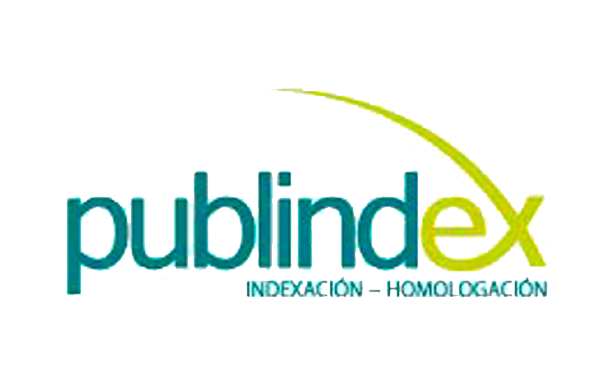Didactic strategies in the Youth and Adults Education in schools of Alagoas, Brazil.
Abstract
This article aimed to analyze the didactic strategies used by teachers of Youth and Adult Education of three public schools in Alagoas to improve the teaching-learning process. The EJA for many years has been considered an educational subsystem, a poor education for the poor, but there is recognition in recent years of the transformative role it can generate in the lives of people who were excluded from the traditional education system for work reasons, pregnancy, school failure or voluntary dropout. There are also economic reasons that establish the importance of this type of education, being considered as a workforce that must be qualified to enter the increasingly competitive labor market. For whatever reason, the truth is that there are thousands of young people and adults who opt for this educational system and therein lies the importance of making it visible, in this case in a region of Brazil.From a qualitative approach and case study method, research was developed by obtaining data from three focus groups with students and semi-structured interviews with teachers. The data were treated through the content analysis proposed by Bardin (2011). In the speeches arose the dialogic positions of teachers and students object of this research, who demonstrated the importance of the relationship of dialogue and respect between teachers and students of the EJA, highlighting that there are didactic strategies that favor learning, such as practical work and group. However, there is a criticism of the EJA that presents some mechanical processes of nonsense and merely reproductive teaching that do not favor the acquisition of higher thinking skills, such as reflection and analysis of the student’s social reality.Downloads
References
Andrade, E. R. (2004). Os jovens da EJA e a EJA dos jovens. In Barbosa, I. O. y Paiva, J. (orgs.). Educação de
Jovens e Adultos. DP&A, 2004.
Bardin, L. (2011). Análise de conteúdo. Edições 70.
Brasil. (2018). Ministério da Educação. Estudos e Pesquisas Educacionais Anísio Teixeira. Censo escolar: publicados resultados preliminares do Censo Escolar da Educação Básica 2018. Brasilia: INEP. Recuperado de http://www.inep.gov.br/imprensa/noticias/censo/escolar/news18_18.htm. .
Estado de Alagoas. (2006). Secretária de Estado da Educação, Fórum Estadual de Educação. Plano Estadual de Educação 2005-2015.
Fávero, O. (2001). A educação nas constituintes brasileiras 1823-1988. 2ª ed. Autores Associados. Flick, U. (2009). Introdução à pesquisa qualitativa. (3a ed.). (Joice Elias Costa Trad). Artmed.
Freire, P. (2003). Educação e Atualidade Brasileira. Cortez Editora/Instituto Paulo Freire. Freire, P. (1987). Pedagogia do Oprimido. 17. ed. Paz e Terra.
Haddad, S. & Di Pierro, M. C. (1994). Diretrizes de política nacional de educação de jovens e adultos: consolidação de documentos 1985/1994. CEDI, Ação Educativa, ago.
INEP/MEC. (2019). Resumo técnico. Censo da educação Básica 2018. Brasilia: Instituto Nacional de Estudos e Pesquisas Educacionais Anisio Teixeira.
Lüdke, M. & André, M. E. D. (1986). Pesquisa em Educação: abordagens qualitativas. EPU.
Menegolla, M. & Sant’ anna, I. M. (1991). Por que planejar? Como planejar? Currículo, área, aula. 19ª ed. Vozes. Moraes, R. (1999). Análise de conteúdo. Revista Educação, 22(37), p. 7-32.
Moreira, H. & Caleffe L.G. (2006). Metodologia da pesquisa para o professor pesquisador. DP&A. Paiva, V. (2003). História da educação popular no Brasil. Loyola.
Prado, M. R. (1999). Estudos da sociedade e da natureza: Salto para o futuro – Educação de jovens e adultos, Brasília, v. 10, p. 75-80.
Roldão, M. C. (2009). Estratégias de ensino: o saber e o agir do professor. Fundação Manuel Leão. Romão, J. E. (2011). Educação de Jovens e Adultos. (13a ed.). Editora Cortez.
Tardif, M. (2010). Saberes docentes e formação profissional. Vozes.
Vargas, P. G. & Gomes, M. F. C. (2013). Aprendizagem e desenvolvimento de jovens e adultos: novas práticas sociais, novos sentidos. Educ. Pesque. 39(2), p. 449-463. Recuperado, el 4 de abril 2018, de http://www. scielo.br/scielo.php?script=sci_arttext&pid=S1517-97022013000200011.
Yin, R. K. (2001). Estudo de caso: Planejamento e métodos. Brookman.
Creative Commosn Licence 4.0








